
Enschede is a city and municipality in the province of Overijssel. It is located in the Twente region of the eastern Netherlands. The east of the urban area reaches the border of the German city of Gronau.
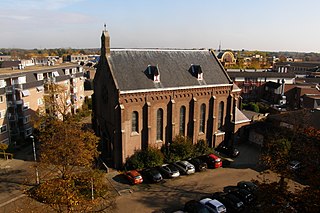
Best is a municipality and a village in the province of North Brabant, southern Netherlands. It is situated northwest of the city Eindhoven, and is part of Brabant's city region.

The Homebrew Computer Club was an early computer hobbyist group in Menlo Park, California, which met from March 1975 to December 1986. The club had an influential role in the development of the microcomputer revolution and the rise of that aspect of the Silicon Valley information technology industrial complex.
The Dutch public broadcasting system is a group of organizations that are responsible for public service television and radio broadcasting in the Netherlands. It is composed of the Nederlandse Publieke Omroep (NPO) foundation, which acts as its governing body, and a number of public broadcasters. The Dutch Media Act 2008 regulates how air time is divided and puts the administration of the public broadcasting system in the hands of the NPO Board of Directors.
The Centrum Wiskunde & Informatica is a research centre in the field of mathematics and theoretical computer science. It is part of the institutes organization of the Dutch Research Council (NWO) and is located at the Amsterdam Science Park. This institute is famous as the creation site of the programming language Python. It was a founding member of the European Research Consortium for Informatics and Mathematics (ERCIM).
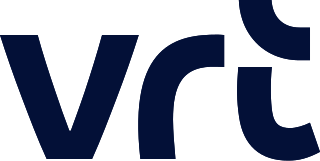
The VRT is the national public-service broadcaster for the Flemish Community of Belgium.
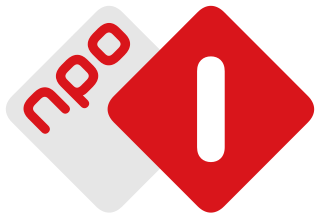
NPO 1 is the first national television station in the Netherlands. It launched on 2 October 1951. It provides public broadcasting and currently exists next to sister channels NPO 2 and NPO 3. Several broadcasting organisations of the Publieke Omroep deliver a wide variety of programs for the channel, usually for larger audiences. In 2018, it was the most viewed channel in the Netherlands, reaching a market share of 22.0%.

Tweakers is a Dutch technology website featuring news and information about hardware, software, games and the Internet. The name is derived from the verb "tweaking", which is a word geeks use to refer to optimisation of hardware.

Scouting Nederland is the national Scout organisation of the Netherlands with approximately 110,000 members (53,324 male and 54,663 female, 87,000 youth members, as of 2010.
TMF was a 24-hour music channel operated by Viacom International Media Networks in the Netherlands. The channel was previously in every standard TV package, but it ceased operating on 1 September 2011. The channels operations were based in Amsterdam. The channel was previously known as TMF6 and TMF9.
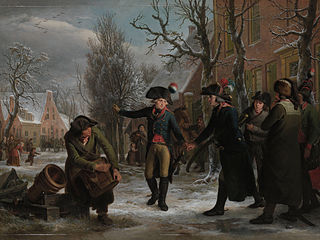
The Batavian Revolution was a time of political, social and cultural turmoil at the end of the 18th century that marked the end of the Dutch Republic and saw the proclamation of the Batavian Republic.
The Military ranks of the Netherlands Armed Forces are the military insignia used by the armed forces of the Netherlands.
Mediahuis is a European multinational newspaper and magazine publishing, distribution, printing, television, radio and online media company founded in 2014 with assets in Belgium, the Netherlands, Ireland, Luxembourg and Germany. Mediahuis publishes daily newspaper titles in Belgium, the Netherlands and Ireland as well as regional titles, and is involved in broadcasting a number of Dutch and French language TV and radio stations.
According to research done by the Organisation for Economic Co-operation and Development (OECD), the Netherlands is ranked with Switzerland in having the most broadband subscriptions per 100 inhabitants, has no bandwidth caps, and has the most homes passed in Europe in terms of connection speeds of 50 Mbit/s and higher.

HVV (Haagse Voetbal Vereniging: Dutch for is an amateur football club in The Hague, Netherlands. It was founded in 1883 as an extension of HCC, Hague Cricket Club. In 1978, on the occasion of the club's centenary, Queen Juliana granted the club royal patronage, with prefix Koninklijke, because of its pioneering role in sport, including in the formation of the Royal Dutch Football Association in 1889. Since then it has been called Koninklijke Haagse Cricket & Voetbal Vereniging, abbreviated KHC&VV. The club's grounds since 1898 have been at the 1,200-capacity "De Diepput", on the border between Benoordenhout and Wassenaar. It now also plays tennis, squash and judo and has around 1750 members.

UPC Nederland was the second largest cable operator in the Netherlands, providing cable television, broadband Internet, and telephone service to both residential and commercial customers.

Computer!Totaal, conveniently abbreviated as C!T, is a Dutch monthly magazine about computers and related subjects. It is the largest computer magazine of the Netherlands.

The Caribbean Netherlands is a geographic region of the Netherlands located outside of Europe, in the Caribbean, consisting of three so-called special municipalities. These are the islands of Bonaire, Sint Eustatius and Saba, as they are also known in legislation, or the BES islands for short. The islands are officially classified as public bodies in the Netherlands and as overseas territories of the European Union; as such, European Union law does not automatically apply to them.
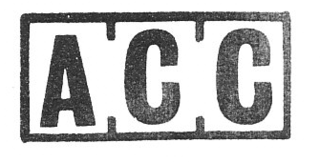
The Amateur Computer Club (ACC), founded in 1973, was an early British club "open to all interested in the design, construction or programming of computers as a hobby". Most of its members lived in the United Kingdom. In 1976 an educational journal described the growth of "hobbyist" computing and said "in [the UK] there is currently one shop ... and also an active Amateur Computer Club with over 600 members".

Ziggo Holding B.V. is the largest cable operator in the Netherlands, providing digital cable television, Internet, and telephone service to both residential and commercial customers.














